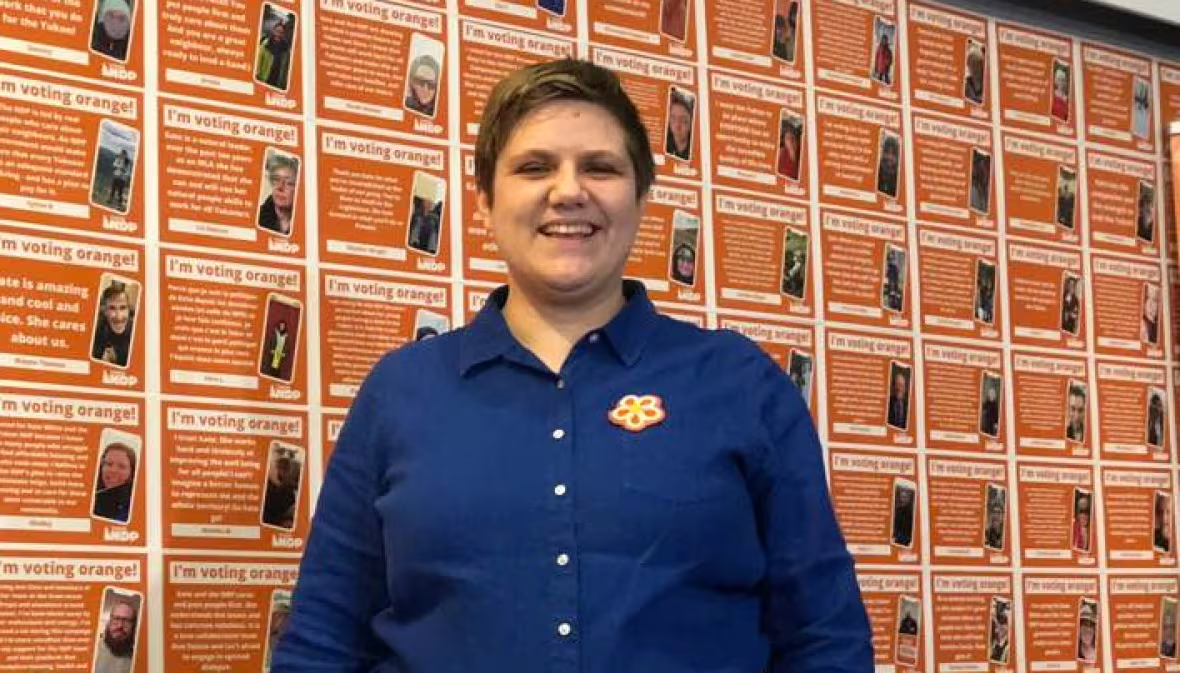CBC projects minority government in Yukon election, winner too close to call
Final result may be determined by one riding, where tie will trigger automatic recount

CBC News is projecting a minority government in Yukon, but the final seat count is still too close to call and may not be decided for several days.
The results were extraordinarily close throughout Monday night as votes were counted in Yukon's 19 ridings. By night's end, it was still not clear whether Sandy Silver's Liberals would come out ahead in the seat count and hang onto power.
But the party's hopes for a second majority government had been clearly thwarted by Currie Dixon's Yukon Party. The Liberals and Yukon Party found themselves with a potential even split of seats, at eight each. Ten seats were needed to win a majority.
Kate White's NDP meanwhile was set to hold at least two seats in the Yukon Legislature.
A final decision will depend on who wins in the territory's least-populated riding, Vuntut Gwitchin, where CBC projects a tie between the Liberal and NDP candidates. A win there would give the Liberals a narrow edge of nine seats in the territory's 19-seat legislature.

The Yukon Party was projected to hold onto the six seats it held before the election, and gain two more at the expense of the Liberals.
LIVE RESULTS | Get up-to-the-minute results from all 19 ridings
In Vuntut Gwitchin, Liberal incumbent Pauline Frost and NDP challenger Annie Blake were both projected to win 78 votes — a tie that will trigger an automatic recount after vote counts are certified on Tuesday.
Under Yukon's Elections Act, a recount that results in a tie is to be decided by the drawing of lots.
Silver was subdued in a speech late Monday at his campaign headquarters in Dawson City, noting the results are still uncertain.
"Until we know the results of Old Crow [in the Vuntut Gwitchin riding], it's a hard speech to be making really," he said.
Dixon, speaking at his campaign headquarters in Whitehorse, said he would wait for final results from Vuntut Gwitchin, but noted that Silver's Liberals have the first opportunity to form a government.

Silver's Liberals entered the campaign hoping for a historic second term as a majority government. Yukon's only previous Liberal government, in the early 2000s, was ousted after one term.
Dixon, who was leading the Yukon Party through an election for the first time, was hoping to return his party to power after five years on the opposition benches. Silver's win in 2016 brought an end to 14 consecutive years of Yukon Party rule.
And the NDP's White, also helming her party through an election for the first time, was hoping to see her party rebound after its losses in 2016, when it was reduced from Official Opposition to third-party status in the legislature.

Chief electoral officer Max Harvey has said that, with the territory's growing population, there were almost 4,500 to 5,000 more electors than in 2016. In that year, 18,840 Yukoners cast a ballot, representing a turnout of about 76.4 per cent.
Unofficial results from Monday showed that 19,001 Yukoners voted this year, a turnout of about 65.5 per cent.
This year, a total of 7,668 Yukon electors either cast their vote in advance polls last weekend or were issued a special ballot, up from 6,251 in 2016, Elections Yukon said Saturday.
Corrections
- An earlier version of this story said voter turnout on Monday was about 80.9 per cent. In fact, about 65.5 per cent of registered voters cast a ballot.Apr 13, 2021 8:48 PM EDT